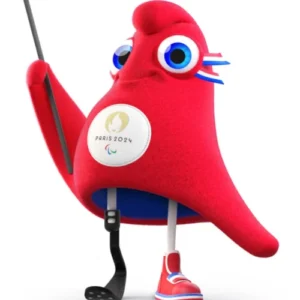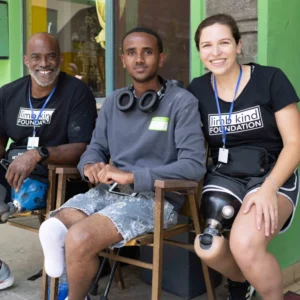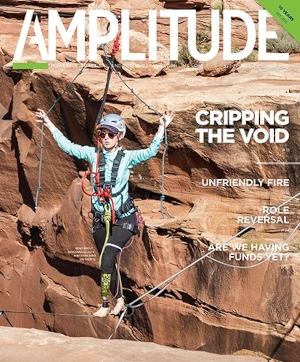by Alexandra Capellini
A few weeks ago, I was working a shift in the adult intensive care unit (ICU) at my hospital. One of my patients had just been extubated; I was in his room to share medical updates with him and his partner. At some point, his partner asked me to step into the hallway. “Listen, that blood pressure medication he was prescribed at home? He hasn’t been taking that,” she said. I thanked her for letting me know. Then she leaned forward, lifted her arm onto my shoulder, looked down at her feet, and asked: “How long did it take you?”
Without missing a beat, I knew exactly what she was talking about. I looked up, locked eyes with her, and said: “Many years. It’s taken me many years.” “But you’re so young,” she said, and I told her: “I’ve had a prosthesis since I was seven years old.” She looked back at me and replied, “I’m still getting the hang of it.”
I had suspected she was a lower-limb amputee; something in her walk had given it away to me earlier in the week. “You will get there,” I assured her. “It takes time and patience—a lot of time and patience.” She grasped my hand.
Nothing about that conversation had anything to do with my care for her partner in the ICU. But that’s how my life as an amputee doctor goes. Patients notice my limb loss all the time. It doesn’t always lead to a conversation. Sometimes it’s just in the eyes that don’t meet mine when I walk into a room, because they’re watching my limp. It’s in the child hiding behind her mom in clinic, too shy to say something directly but curious enough to point and whisper. It’s in the confusion on a patient’s face as they’re describing their symptoms while their eyes capture the unorthodox bend of my knees as I take a seat. The other day, it was the father of one of my teenage patients, saying, “Ay, you got something bionic!” as he walked past me in the hallway.
Spoken or unspoken, it’s a thing. Most of the time, I brush off the subtle, implied reactions and carry on. When a reaction is more obvious, I tend to lean into it, as long as I feel that I’m in a safe space. I want to live in a world where people, especially children, view those of us with physical disabilities as regular members of the community who are present and fully integrated into society. Children won’t learn that if they are never given opportunities to see or engage with us. I want them to have the opportunity to learn that prostheses exist, and some people use them to walk because not everyone has two legs. That’s it.
One day in clinic several weeks ago, a child came in with abdominal pain. As I asked her mother about symptoms, I noticed the girl’s eyes fixated on my prosthesis. She turned away every time I caught her gaze, and her mom said, “Let’s not stare like that.” I carried on with my questions and then asked the girl to sit on the table for a physical exam. She sat up and said, “You have a prosthesis.” What news to me! I nodded, “Yes, I do. And I’m impressed you know that word!” That was all we needed to say about it.
Several people have asked me if limb-loss conversations with my adult patients ever become distracting. I don’t believe they do, and at times they help build trust. When one of my cardiology patients, a veteran, passed away, two of his friends from the American Legion were at his bedside. I asked one of them how he was doing. He said, “I’m going to be okay. We’re veterans. We will carry on. That’s what we do.” I smiled, and he added: “You know about that. I would never have guessed you were walking on a prosthesis, but you’re here doing it. We likely won’t cross paths again, but don’t think that your presence here hasn’t left an impact on me.”
I held onto those words over the next few days while I silently mourned my cardiology patient. It was the first death exam I had done in residency.
Whenever patients and their families make note of my prosthesis, there is an unspoken awareness that, like them, I have been through difficult things. And they are right. My experience with pediatric cancer and limb loss, up to this day, has been a humbling, complicated journey of emotional highs and lows. Physical setbacks test my patience. I am frustrated at times when I want to walk better up a flight of stairs, up a hill, or with less of a limp, and there are no quick fixes in the moment. I commit to long-term goals that can only be reached with persistence. I have learned what is out of my control and what is not, how to take care of my mental and physical health, how to make the stares on the street take less of a toll. I have learned how to walk with compassion. It has been an incredibly rewarding way of life, if at times exhausting. But I do carry on.
That’s what I want my patients to know: how to carry on. I bring that perspective with me to each patient encounter. I don’t view that as a distraction. I view it as a way of connecting on a deeper level with patients and children that facing their own uphill journeys. I can remind them to walk up that hill with compassion for themselves. There is a process to be trusted. There are goals that can be set and reached. Do these encounters take more of my energy? They certainly do. I take that on every day because I consider myself privileged to be in this position. Few people with disabilities make their way into healthcare. I strive to take the best care of my patients, while also giving them examples of what can happen when you trust yourself to navigate whatever curveballs lie ahead.
Alexandra Capellini is a resident physician at the University of Michigan Hospital in Ann Arbor.










